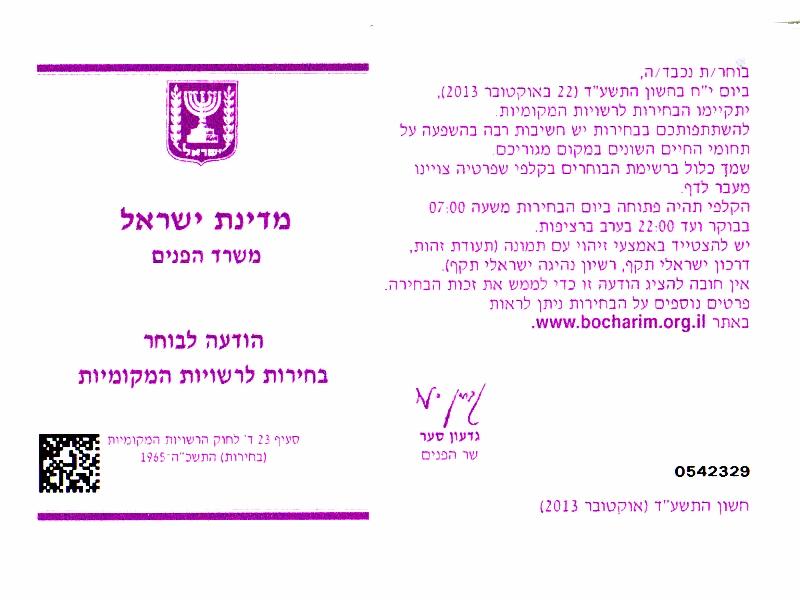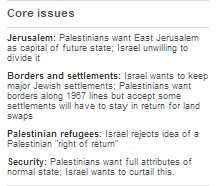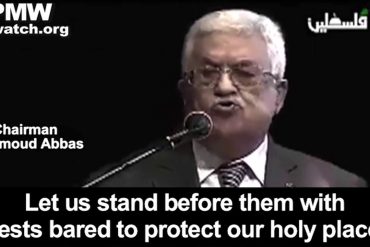On October 22nd Israelis will go to the polls to vote in municipal elections which will determine the make-up of their local councils for the coming five years. In addition to Israeli citizens, permanent residents of Israel who do not hold citizenship are eligible to vote in these elections and that of course includes residents of Jerusalem who have chosen not to take advantage of their right to apply for Israeli citizenship. 
Naturally, these local elections will be of little interest to BBC audiences on the whole and so ostensibly there is no reason for the BBC to cover them. But one aspect of the municipal elections in Jerusalem should be made known to BBC audiences if the corporation is to comply with its remit to “enhance UK audiences’ awareness and understanding of international issues” by providing them with a balanced and impartial picture of which this story is part.
In the BBC article titled “Obstacles to Arab-Israeli peace: Jerusalem” which is being promoted on the BBC News website as additional reading on the broader subject of Middle East peace talks, the author Martin Asser claims that Arab residents of Jerusalem “say discrimination overshadows their lives: restrictions on building or renovation; disregard by the municipality even though they pay taxes…”.
What he does not tell BBC audiences is that those residents have consistently declined to take part in the democratic process which would afford them representation on the city council and thus pave the way to eliminating those perceived grievances. And of course he also does not inform BBC audiences of why that is the case.
As veteran journalist Khaled Abu Toameh recently wrote:
“The Arabs make up 25-30% of the city’s eligible voters, which means that they could have 7-8 representatives in the 31-seat municipal council.”
So why aren’t there seven or eight Arab representatives on the Jerusalem municipal council?
“In the past few days, the Palestinian Liberation Organization [PLO], Hamas and several other Palestinian organizations have called on the Arab residents of Jerusalem to stay away from the ballot boxes.” […]
“A few Arabs who in the past dared to challenge the boycott have faced death threats. One of them was newspaper publisher Hanna Siniora, who back in 1987 announced his intention to run in the municipal election. Siniora’s car was torched by members of the Popular Front for the Liberation of Palestine, a move that forced him to retract his candidacy.
Eleven years later, another Arab, Mussa Alayan, defied the boycott by running at the head of an independent list. He received fewer than 3,000 votes and did not make it to the city council. Alayan could have probably become the first Arab council member had he and his supporters not faced a brutal and violent campaign by Palestinian activists.”
This story of long-time and current intimidation of potential candidates and voters in a democratic process is going on right under the noses of the BBC staff located in its Jerusalem Bureau and yet not one line has been written on the subject or one minute of film broadcast.




